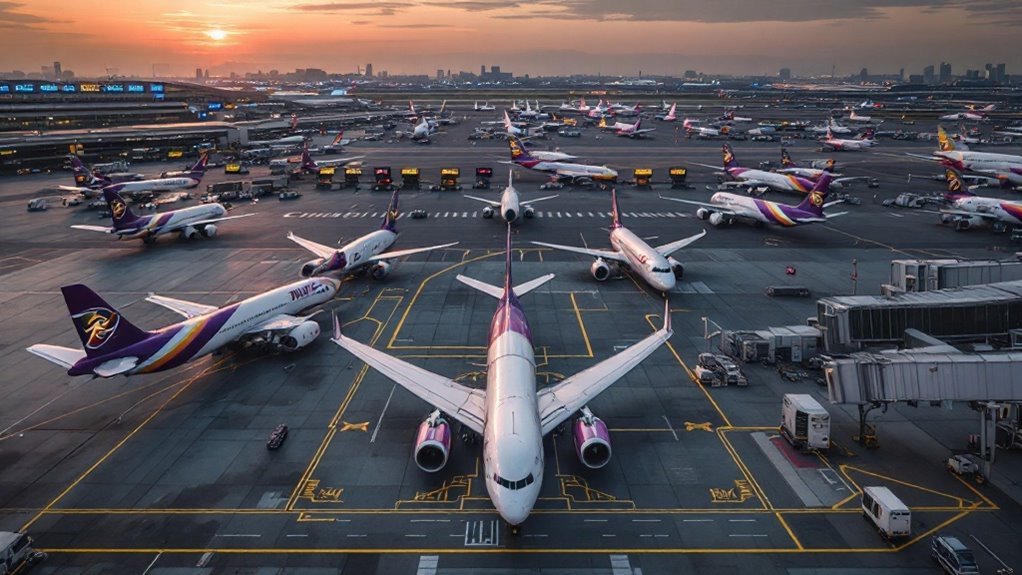The sudden 48-hour shutdown of Pakistan’s airspace, caused by intensified military tensions with India, has forced Thai Airways and several international carriers to cancel or reroute dozens of flights connecting Europe, South Asia, and Southeast Asia. This disruption raises safety concerns over route changes and operational risks, while increasing costs and delays for airlines and passengers. International travel advisories and financial strain on the travel industry further underscore the instability in the region, with detailed developments emerging from the ongoing situation.
The sudden closure of Pakistan’s civilian airspace for 48 hours, following recent military escalations with India, has forced major disruptions to international air travel, particularly affecting Thai Airways and other Asian carriers. This unprecedented shutdown comes in the wake of missile strikes between India and Pakistan, both nuclear-armed nations, greatly increasing regional tensions and global concerns. As a direct result, at least 52 flights to and from Pakistan have been canceled, with ripple effects felt across Asia and beyond.
Airlines such as Thai Airways, Korean Air, EVA Air, China Airlines, and Vietnam Airlines have responded by rerouting or canceling flights to avoid the affected airspace. Thai Airways, in particular, is adjusting routes for flights to Europe and South Asia, now bypassing Pakistani airspace to guarantee passenger and crew safety. These rerouted paths often increase flight duration, leading to delays and necessitating changes in flight schedules. Travelers are being informed of possible disruptions, and the airline is urging passengers to monitor updates and adjust plans accordingly. Airlines have also been forced to cancel domestic flights within India and Pakistan due to airport closures, amplifying the overall level of disruption in the region.
Major Asian airlines are rerouting or canceling flights to bypass Pakistani airspace, causing delays and urging travelers to stay updated on disruptions.
The Association of Asia Pacific Airlines has expressed concerns about operational safety, highlighting risks such as GPS spoofing and disruptions near conflict zones. As a preventative measure, airlines have activated contingency plans and are diverting flights over alternative regions, though this can increase fuel costs and operational complexity. Northern airspace over the subcontinent was left nearly empty of civilian aircraft during the conflict, further demonstrating the scale of disruption to regional routes.
The United Kingdom’s Foreign Office has advised against travel near the India-Pakistan border and in Pakistan-administered Kashmir, with similar guidance issued by other governments.
These changes are not limited to airline operations; the tourism sector and local economies also face adverse impacts due to travel advisories and reduced passenger volumes. Airlines are bracing for financial challenges resulting from canceled services and longer flight routes, which may reduce profitability.
Passengers, meanwhile, are urged to register with travel alert systems and remain vigilant by following local news. As the situation remains fluid, the international community continues to monitor developments, balancing the priorities of safety, economic stability, and diplomatic engagement amid ongoing regional instability.









